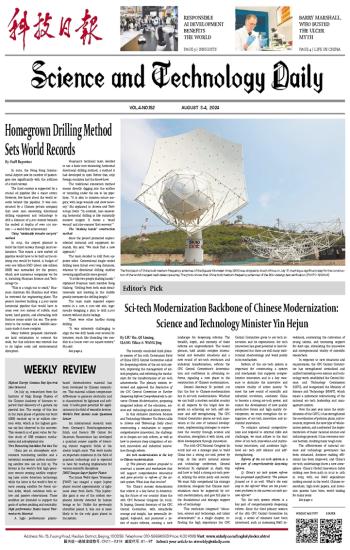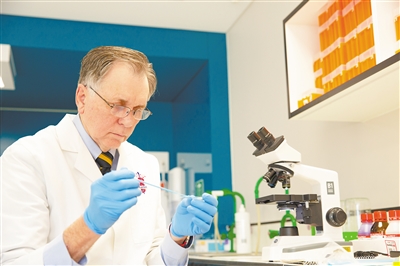
 |
| Professor Barry Marshall. (COURTESY PHOTO) |
Australian physician Barry Marshall won the Nobel Prize in physiology or medicine with Dr. Robin Warren in 2005 for their discovery that stomach ulcers are caused by the Helicobacter pylori (H. pylori) bacterium. Their discovery challenged decades of medical belief that ulcers were primarily caused by stress, spicy food and too much acid and provided a breakthrough in understanding the causal link between the bacterial infection and stomach cancer.
When Marshall was his own guinea pig
"In 1979, the pathologist Robin Warren observed a curved bacterium on the gastric antral mucosal tissue sections of patients with chronic gastritis and found that the gastric mucosa adjacent to this bacterium always had inflammation, thus realizing that this bacterium might be closely related to chronic gastritis," Dr. Marshall, who is also professor of clinical microbiology at the University of Western Australia, told reporters.
Since 1981, he has worked with Dr. Warren, studying patients with gastric diseases who underwent gastroscopy and biopsy and proved that the bacterium is related to gastritis. They also found that the bacterium was present in the gastric mucosa of all patients with duodenal ulcers, most patients with gastric ulcers, and a significant number of patients with gastric cancer.
Initially, however, though Dr. Marshall experimented with different ways, animals and vaccines, he still could not develop an animal model for the bacterium. "To prove that H. pylori was the 'real culprit' in gastritis, I drank the culture fluid containing the bacterium and ended up getting seriously ill," he said, "Afterwards, Dr. Robin Warren and I jointly proposed that H. pylori was involved in the etiology of gastritis and peptic ulcer."
After their research results were published in The Lancet in April 1984, it triggered a wave of research on the bacterium. There were countless research papers, a journal devoted to the bacterium, the Helicobacter Magazine, was founded, a World Helicobacter Conference was started and began to be held regularly, and major pharmaceutical companies around the world invested heavily in the development of drugs.
Through human trials, antibiotic treatment and epidemiological studies, medical researchers have continued to deepen their research on the pathogenic mechanism of the bacterium. Millions of patients have benefited from the results.
On October 3, 2005, more than 20 years after the discovery of H. pylori and its pathogenic mechanism causing gastritis, peptic ulcers and duodenal ulcers, Dr. Marshall and Dr. Warren were awarded the Nobel Prize.
Dr. Marshall remains dedicated to the eradication of H. pylori and the prevention and treatment of gastric cancer. He invented the "Marshall HP Personalized Precision Medicine", which eradicated cases of the bacterial infection by almost 95 percent.
A long association with China
Dr. Marshall was elected a foreign academician of the Chinese Academy of Engineering, worked as the director of the Marshall Medical Research Center of Zhengzhou University in 2016, and established the Marshall Biomedical Engineering Laboratory at Shenzhen University in 2019.
However, his association with China began decades ago.
"In 1993, when I was working in the United States, I met a very good Chinese scientist who suggested that I try to develop medical business in China. At that time, we traveled around China and visited many of China's top elite universities," Dr. Marshall said. He was impressed with the infrastructure and scientific research facilities in China. His cooperation with China goes very deep. He collaborated with the Fifth Affiliated Hospital of Zhengzhou University to jointly train graduate students and established the Marshall Hospital. He also established the Marshall Medical Research Center at Zhengzhou University and the Marshall Biomedical Engineering Laboratory at Shenzhen University.
This year, Dr. Marshall signed a cooperation agreement with the Second Hospital of Ningbo for basic, clinical and translational cooperation in several fields, including training and research. Dr. Marshall has high expectations for future work in China. He hopes the cooperation in research will be deepened and benefit more people.
This article was edited and translated by BI Weizi based on the Chinese version.

 Next
Next




